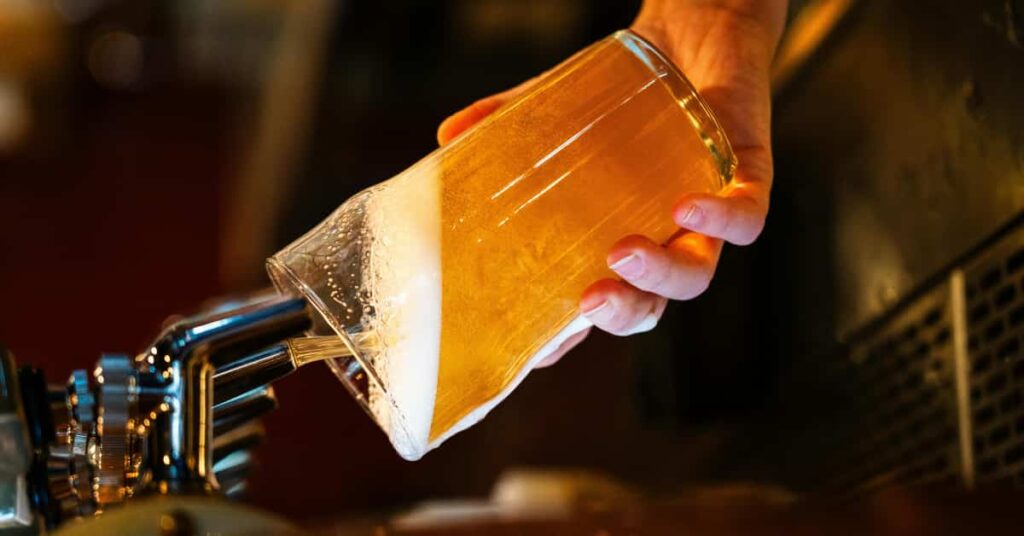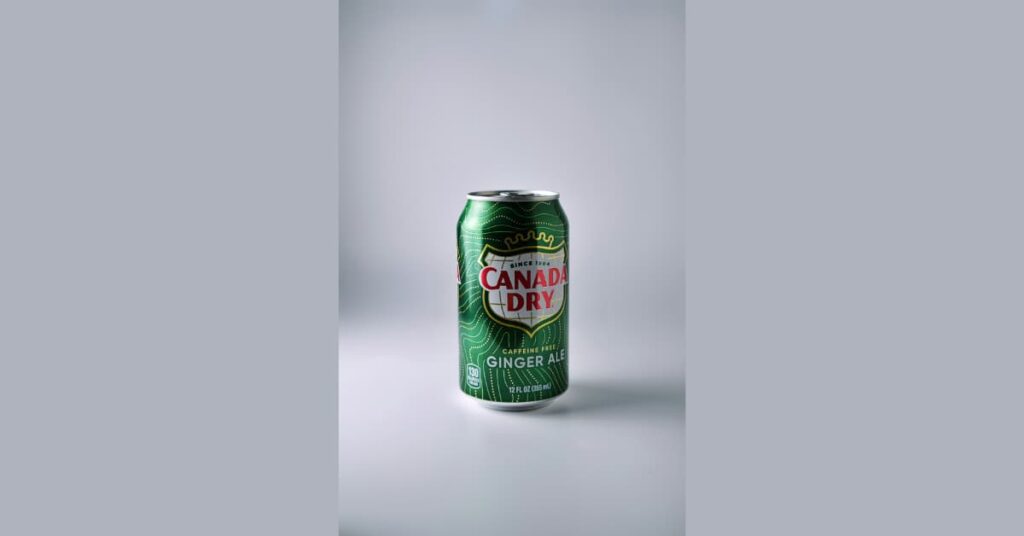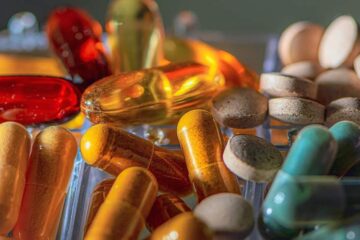Table of Contents
Introduction
Ginger ale is a carbonated, non-alcoholic drink that can be traced back to the 1850s in Ireland. It’s stated that Irish pharmacy owner Thomas Joseph Cantrell assembled the sweet, ginger-based beverage in Belfast. Before 1900, Canadian pharmacist John J. McLaughlin assembled a dryer, a less-sweet type of ginger ale. He patented the beverage as Canada Dry Ginger Ale.
The origin of ginger ale is carbonated water, ginger, and sugar. The drink can be enjoyed alone or as a mixer for alcoholic and non-alcoholic beverages.

Ginger ale
Ginger ale is a carbonated drink flavored with the spice or herb ginger. Individuals typically consume it independently, but sometimes use it in mixed drink recipes.
Manufacturers make most commercial ginger ale as soda. They mix carbonated water with sugar or high fructose corn syrup and raw or artificial ginger flavoring.
It usually contains preservatives, like citric acid, sodium benzoate, and caramel color.
Some brands add other elements to their “natural or raw flavoring.” These combinations of ingredients are proprietary blends, meaning that the companies keep them private.
Nevertheless, a more traditional style of ginger ale is known in certain stores and online. This method utilizes either yeast or ginger bugs as a microbial beginner culture.
Ginger bug is alike to the SCOBY, or starter culture, utilized to make sourdough bread or kombucha. It emanates from either the ginger beer plant or fresh ginger root. As it ferments, healthy bacteria and yeasts grow and produce natural carbonation.
This traditionally designed ginger ale also includes more natural components, such as fresh ginger root, cane sugar, and water, and does not contain unnatural colors.

Ginger Ale Benefits
While it is famous for its refreshing taste, it can also offer potential health benefits, particularly when made with real ginger.
1. Contains anti-inflammatory properties
When formulated with genuine ginger, ginger ale carries the potential anti-inflammatory benefits of the powerful root. The key components, particularly the phenolic compounds like gingerols and shogaols, are recognized for their robust power to suppress pro-inflammatory pathways in the body. By inhibiting the production of different inflammatory mediators, the energetic ingredients in ginger can decrease swelling and discomfort, which is one reason for the tradition of drinking ginger-flavored beverages to find relief from general aches or symptoms of mild inflammation. Further, the anti-inflammatory consequences of ginger may offer comfort to people with arthritis by decreasing pain and enhancing joint function.
2. Reduces Menstrual Pain (Dysmenorrhea)
Ginger is as efficient as some over-the-counter medications in decreasing the harshness of pain associated with menstrual cramps.
3. Helps in digestion
Ginger ale is usually used as a home remedy to help an upset stomach and is believed to aid digestion primarily due to the presence of ginger. The rhizome of the ginger plant includes natural active combinations like gingerols, which are understood to assist alleviate feelings of nausea and facilitate quicker gastric emptying, thereby relieving symptoms of indigestion and bloating. When consumed as a soothing, bubbly beverage, it is traditionally sought after for its calming effect on the Stomach, delivering a comforting and hydrating option during periods of digestive discomfort. This investigation, published in Food Science and Nutrition, points to ginger being a gastroprotective agent with multiple digestive benefits.
4. Reduces nausea
Ginger ale is widely acknowledged as a traditional treatment for nausea, an outcome attributed to its primary flavoring agent, ginger. The natural root, Zingiber officinale, includes bioactive compounds, particularly gingerols and shogaols, which interact with the nervous system and gastrointestinal tract to alleviate feelings of illness. This soothing quality has made it a popular choice to sip slowly when experiencing common conditions like morning sickness, motion sickness, or general Stomach upset, usually supplying a relaxing and hydrating way to settle the Stomach. The introspection mentioned above also says ginger can help relieve morning sickness in pregnant women.

5. Supports your respiratory system
Ginger ale, particularly types containing a significant portion of actual ginger, traditionally delivers a warming and calming effect that helps the respiratory system. The root’s functional combinations, such as gingerols and shogaols, have anti-inflammatory and decongestant effects that can help to decrease irritation and inflammation in the airways, which is especially advantageous during a cold or cough. Similarly, research shows that these ginger components boost the relaxation of airway smooth muscle tissues, potentially contributing to more comfortable breathing and a soothing sensation against congestion and constant coughing.
6. Improves blood circulation
Ginger ale, especially variants created with real ginger extract, is often cited for its power to encourage better blood circulation. This benefit stems from the action of ginger’s key combinations, such as gingerols, which work as vasodilators—meaning they allow relaxation and expansion of blood vessels. This development facilitates more effortless blood flow throughout the body, reducing resistance and potentially lowering blood pressure. By improving this circulation, the beverage may help deliver warmth, oxygen, and nutrients to the body’s extremities, contributing to cardiovascular wellness.
7. May Help Lower Blood Sugar
Ginger supplementation studies suggest it may enhance insulin sensitivity and help control blood glucose levels.
8. Cancer Prevention
Ginger ale, especially those containing real ginger extract, is associated with potential cancer prevention benefits emanated from the ginger root. Ginger is a rich source of bioactive phenolic combinations, such as gingerols and shogaols, which have been investigated in laboratory and animal models for their anticancer properties. These combinations are apprehended to work by modulating key cellular signaling pathways, promoting antioxidant defenses, and inducing apoptosis (programmed cell death) in different cancer cells, thereby contributing to the body’s innate mechanisms for chemoprevention.
9. Rich in antioxidants
Ginger ale derives its importance from being rich in antioxidants from the ginger root utilized in its flavoring. Ginger includes an increased concentration of potent phenolic compounds, such as gingerols, shogaols, and paradols, all possessing potent antioxidant properties. These compounds are highly efficient at neutralizing free radicals in the body, which allows them to combat oxidative stress & protect the body’s cells from damage. When ale is created with genuine ginger extract, it harnesses these natural antioxidants, refreshingly supporting the body’s defenses against cellular wear and tear.
10. May Boost Immunity
Ginger’s anti-inflammatory, antioxidant, and potential antimicrobial properties help protect the body against common illnesses and infections.

Types of ginger ale
It arrives in several types.
Some of the numerous popular kinds of ginger ale are:
- Dry. “Dry” appears to be a marketing term brands utilize to explain ginger ales, which have a spicier, “drier” ginger taste due to the specific way the ginger root is sourced and processed.
- Regular. This classification includes sodas and the classic ginger ales explained above. They include ginger, sugar or high fructose corn syrup, and carbonation. Depending on the brand, they may also contain other ingredients.
- Diet. This kind of ginger ale includes synthetic or calorie-free sweeteners rather than sugar.
The most suitable type of ginger ale depends mainly on your taste and ingredient preferences.

What are the side effects of ginger ale?
1. Digestive Discomfort (from Carbonation and Sugar)
- Gas, Bloating, and Burping: The dissolved carbon dioxide that makes the drink fizzy can introduce gas into the digestive system, leading to a feeling of fullness, bloating, belching, and increased gas.
- Worsened Stomach Upset: For people already dealing with an upset stomach, the sugar and carbonation can sometimes aggravate symptoms like gas, diarrhea, or acid reflux (heartburn), despite the drink’s reputation as a stomach soother.
2. Effects from High Sugar Content (Regular Ginger Ale)
Most commercial ginger ales are heavily sweetened, which can guide to the health issues associated with all sugary soft drinks:
- Weight Gain: The high number of empty calories contributes to overall calorie intake and is strongly linked to weight gain and obesity.
- Dental Erosion and Decay: The combination of sugar and the acidity of the carbonation and flavorings can erode tooth enamel and feed oral bacteria, significantly increasing the risk of cavities and tooth decay.
- Increased Chronic Disease Risk: Regular consumption of high-sugar beverages is connected to an increased risk of developing Type 2 Diabetes & Heart Disease due to sugar spikes, insulin resistance, and fat accumulation in the liver.
3. Effects from Artificial Sweeteners (Diet/Zero Sugar Ginger Ale)
Diet versions replace sugar with artificial sweeteners, which can have their own set of side effects for some individuals:
- Digestive Issues: Some artificial sweeteners and sugar alcohols can have a mild laxative effect and may cause bloating, gas, and diarrhea, especially when consumed in large amounts.
- Metabolic Concerns: Some studies suggest that artificial sweeteners may negatively impact the gut microbiome and potentially disrupt the body’s capability to regulate blood sugar and insulin sensitivity, though research is mixed and ongoing.
4. Side Effects from High Doses of Ginger (Rare)
While commercial ginger ale contains very little ginger, if you were consuming a strong, homemade version or large amounts of highly concentrated ginger products, you might experience mild side effects such as:
- Heartburn/Reflux: Ginger can sometimes relax the lower esophageal sphincter.
- Increased Bleeding Risk: In very high doses, ginger can slow blood clotting, which concerns people on blood-thinning medicine or those about to undergo surgery.
Ginger ale brand
Some popular ginger ale brands include Schweppes and Canada Dry. Other well-known brands include Vernors, Boylan, Reed’s, and regional and specialty brands like Gunsberg and Svami.
- Schweppes: One of the original sparkling soft drink brands, with a crisp, invigorating flavor that can be enjoyed on its own or as a mixer.
- Canada Dry: Known for its “dry” ginger ale, which has a lighter and less sweet taste compared to golden-style ginger ales.
- Vernors: A flavored, golden ginger ale aged three years in oak barrels before bottling.
- Boylan: A brand that is recognized for its ginger ale.
- Reed’s: Known for its ginger brew.
- Gunsberg: Offers a blended non-alcoholic brew and other types of ale.
- Svami: An Indian brand that offers a premium ginger ale.
Ginger ale recipe
Infuse the water with ginger:
In a pan, bring 2.5 cups of water to a boil. Add ginger. Reduce the heat to medium-low, and let the ginger sit in the boiling water for 6 minutes.
Remove from heat and let stand for 20 minutes. Strain the water through a fine web strainer, discarding ginger pieces.
Make the simple syrup:
In another pan, make the simple syrup by dissolving 1 cup of granulated sugar into 1 cup of boiling water. Set aside.
Assemble the ginger ale:
Make particular (tall) glasses of ginger ale by combining 1/2 cup of ginger water with 1/3 mug of Simple Syrup & 1/2 mug of club soda. Serve over ice, if you like. Add a some drops of fresh lime juice and a wedge to each glass.
Conclusion
Ginger ale is a carbonated drink flavored with the spice or herb ginger. It is famous for its refreshing taste, it can also offer potential health benefits, particularly when made with real ginger. Individuals typically consume it independently, but sometimes use it in mixed drink recipes.




